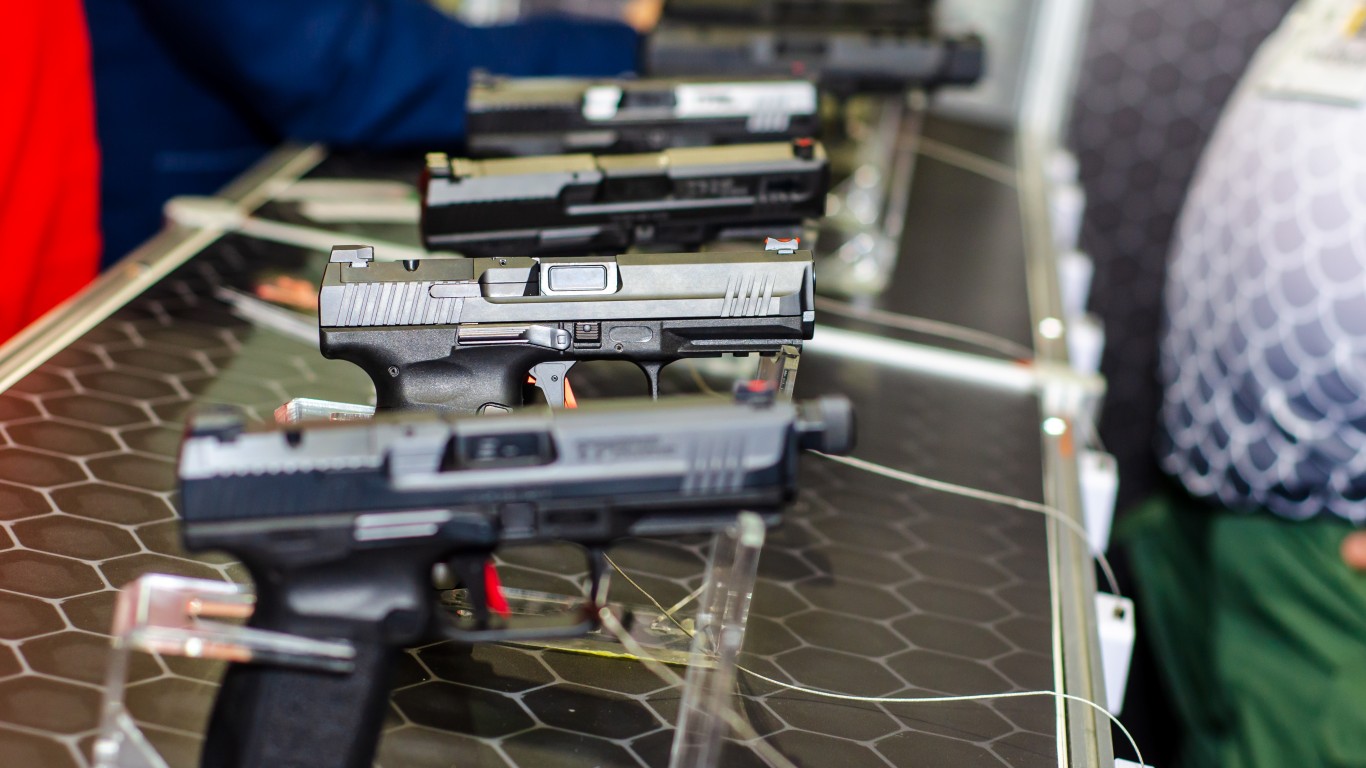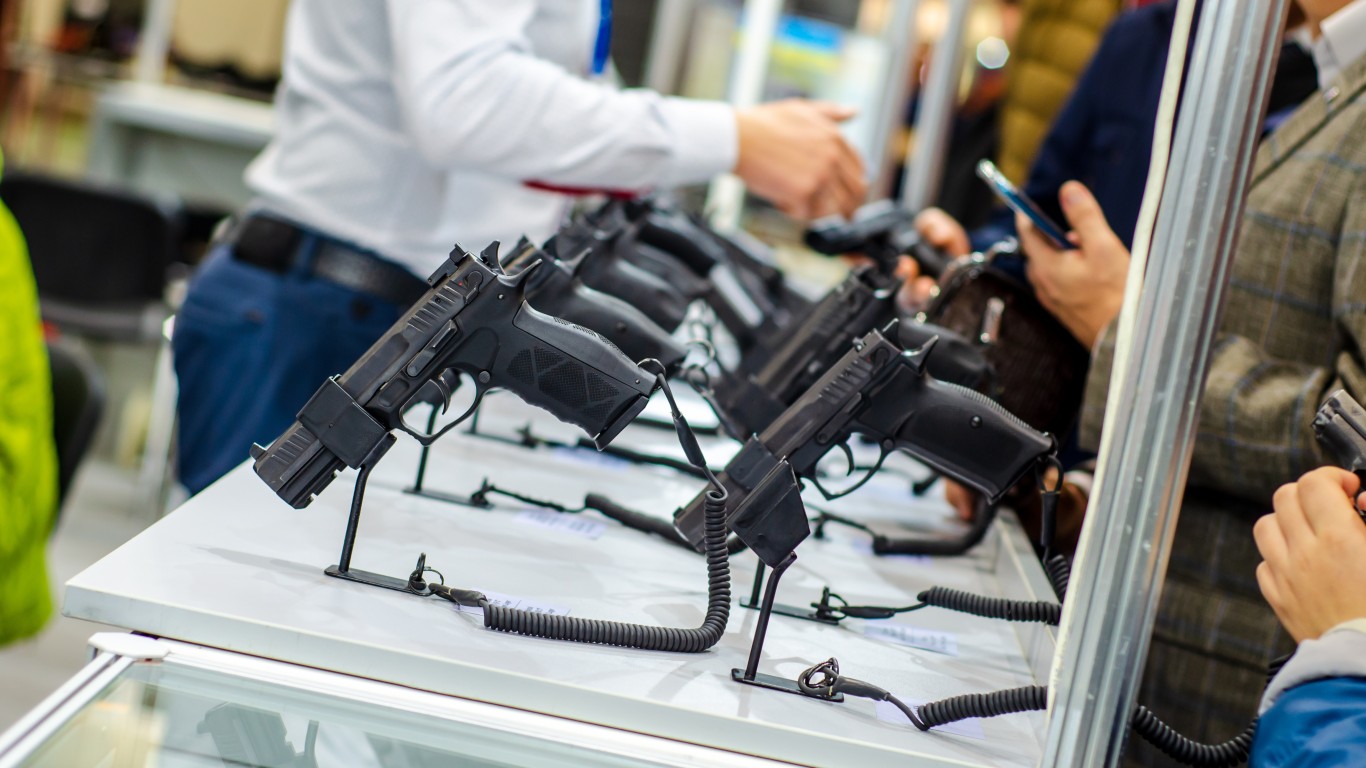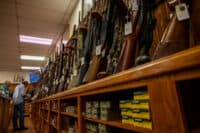
Corporations in the U.S. economy — both foreign and domestic — have forked out $96 billion since 2000 in U.S. penalties for price fixing and other anti-competitive actions in more than 2,000 cases, according to data tracked by national policy resource center Good Jobs First.
These civil and criminal cases have originated from federal agencies, state attorneys general, and class-action lawsuits. In some of the high-profile cases, companies had to settle with federal and state prosecutors and private class-action plaintiffs. Class-actions make up the largest number of these cases. (Not just price fixing, but here are 30 scandals that cost companies billions in fines.)
While many of these antitrust cases go unnoticed, a few stand out for their size and scope. Nearly $93 billion worth of these penalties come from companies and their subsidiaries that have accrued more than $1 billion in U.S. price-fixing penalties since 2000.
These include well-known consumer-facing names like credit card processor Visa and South Korean industrial conglomerate LG, as well as lesser-known companies like Yakazi, which supplies auto parts to U.S.-based car manufacturers, and BC Hydro, a Canadian state-owned electricity exporter, which agreed to pay $750 million in 2013 to settle allegations that its electricity-export division price-gouged consumers during California’s 2000-2001 power crisis.
Out of the $93 billion worth of fines and settlements from companies that have accrued more than $1 billion in penalties since 2000, nearly $49 billion came from 864 cases involving companies headquartered in the U.S. More than 1,000 other cases involved corporations with headquarters located outside of the United States, led by Japanese entities.
To determine the countries where corporations with the most price-fixing penalties are headquartered, 24/7 Wall St. reviewed data from the report “Conspiring Against Competition: Illegal Corporate Price-Fixing in the U.S. Economy” from Good Jobs First. Countries were ranked based on the total amount of penalties the U.S. government levied against companies headquartered there for price-fixing in the U.S. from January 2000 to March 2023. Data on the number of price-fixing cases for each headquarter country also came from Good Jobs First.
The biggest industries with companies that have paid at least $1 billion in price-fixing penalties since 2000 are banking, pharmaceuticals, and electronic equipment. (Price-fixing is easier if a company controls the market. These companies control over 50% of their industry.)
Drugmakers including Israel’s Teva Pharmaceuticals have paid out billions in so-called pay-for-delay cases in the U.S. In these cases, pharmaceutical companies or their subsidiaries have settled allegations of colluding to block the introduction of competing generic drugs, a practice that keeps prices higher by preventing competing, cheaper products from entering the market when patent protections expire.
The massive rate-rigging scandal that emerged in 2012, in which bankers at some of the world’s largest financial institutions colluded to manipulate the benchmark the London Interbank Offered Rate (Libor) and the Euro Interbank Offered Rate (Euribor) interest rates, makes up a sizable portion of the $33.3 billion in U.S.-based fines and settlements paid by banks that have accrued more than $1 billion in penalties since 2000.
Click here to see where corporations cheat the free market the most.
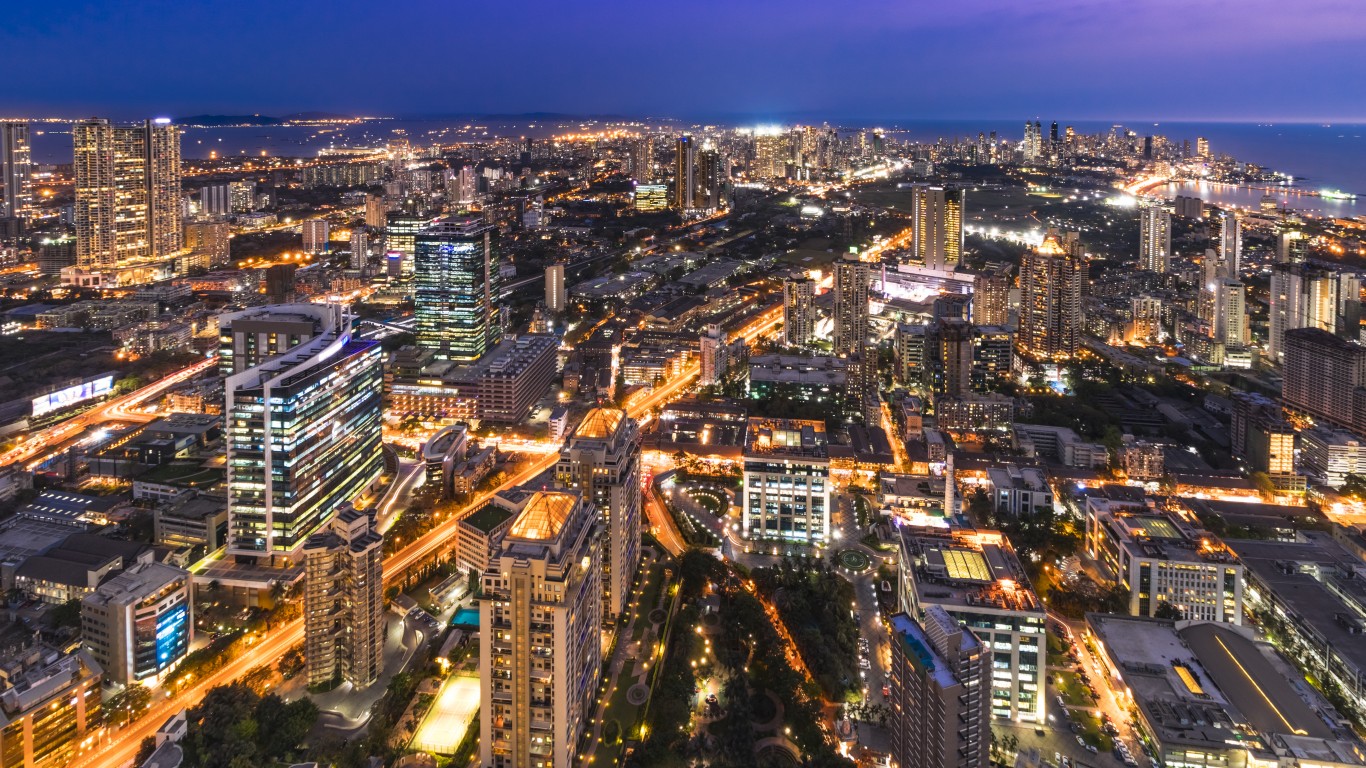
12. India
> Price-fixing penalties against companies headquartered in country since 2000: $1.01 billion
> No. price-fixing cases against companies headquartered in country since 2000: 19
> Biggest offender: Sun Pharmaceuticals
Mumbai-based Sun Pharmaceuticals, a leading manufacturer of generic drugs, agreed to pay $485 million in 2022 to settle legal troubles it inherited following its 2014 acquisition of Indian drugmaker Ranbaxy Laboratories. Ranbaxy was sued by numerous generic drug buyers that accused the company of submitting fraudulent or incomplete applications in the U.S. for drug-approvals to temporarily keep competitors from entering the market for three medications.
Since 2000, Sun or its subsidiaries have accrued $621.6 million in U.S. price-fixing or anti-competitive penalties, comprising 62% of all penalties accrued by Indian-based companies.
[in-text-ad]
11. Canada
> Price-fixing penalties against companies headquartered in country since 2000: $1.60 billion
> No. price-fixing cases against companies headquartered in country since 2000: 34
> Biggest offender: BC Hydro
Powerex, the for-profit subsidiary of British Columbia’s state-owned power utility, agreed in 2013 to pay Californians $750 million to settle allegations of price-gouging during the state’s 2000-2001 power crisis. The province’s Energy Minister Bill Bennett said the decision was made to avoid the possibility of a $3.2 billion judgment if the subsidiary were to lose at trial. Powerex was one of numerous power producers that were accused of price gouging or price fixing during the crisis that led to rolling blackouts and record-high electricity bills throughout the state.
In all, 34 Canadian-based companies paid $1.6 billion in price-fixing penalties in the U.S. since 2000.
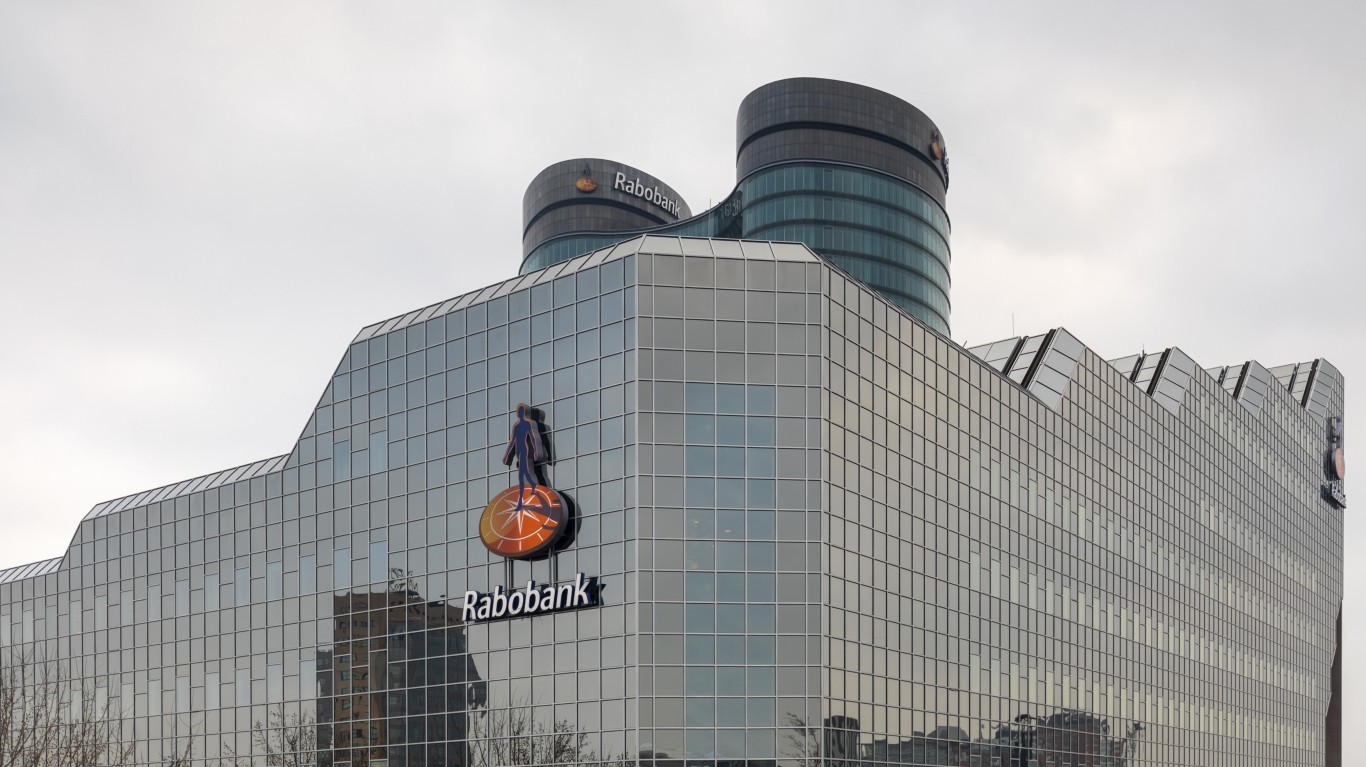
10. Netherlands
> Price-fixing penalties against companies headquartered in country since 2000: $1.63 billion
> No. price-fixing cases against companies headquartered in country since 2000: 16
> Biggest offender: Rabobank
In 2013, Utrecht-based Rabobank forked out $800 million to settle U.S. federal criminal and civil charges that it attempted to manipulate the benchmark Libor and the Euribor rates. The penalties stem from the discovery in 2012 of a massive rate-rigging scandal involving some of the world’s biggest banks. Deutsche Bank, Barclays, and Société Générale — headquartered in three of the other biggest offender countries on this list — were also implicated in the scandal.
Though Rabobank is the biggest offender, accounting for at least half of all penalties paid by Dutch-based companies, in total Dutch companies paid $1.63 billion in price-fixing penalties since 2000.
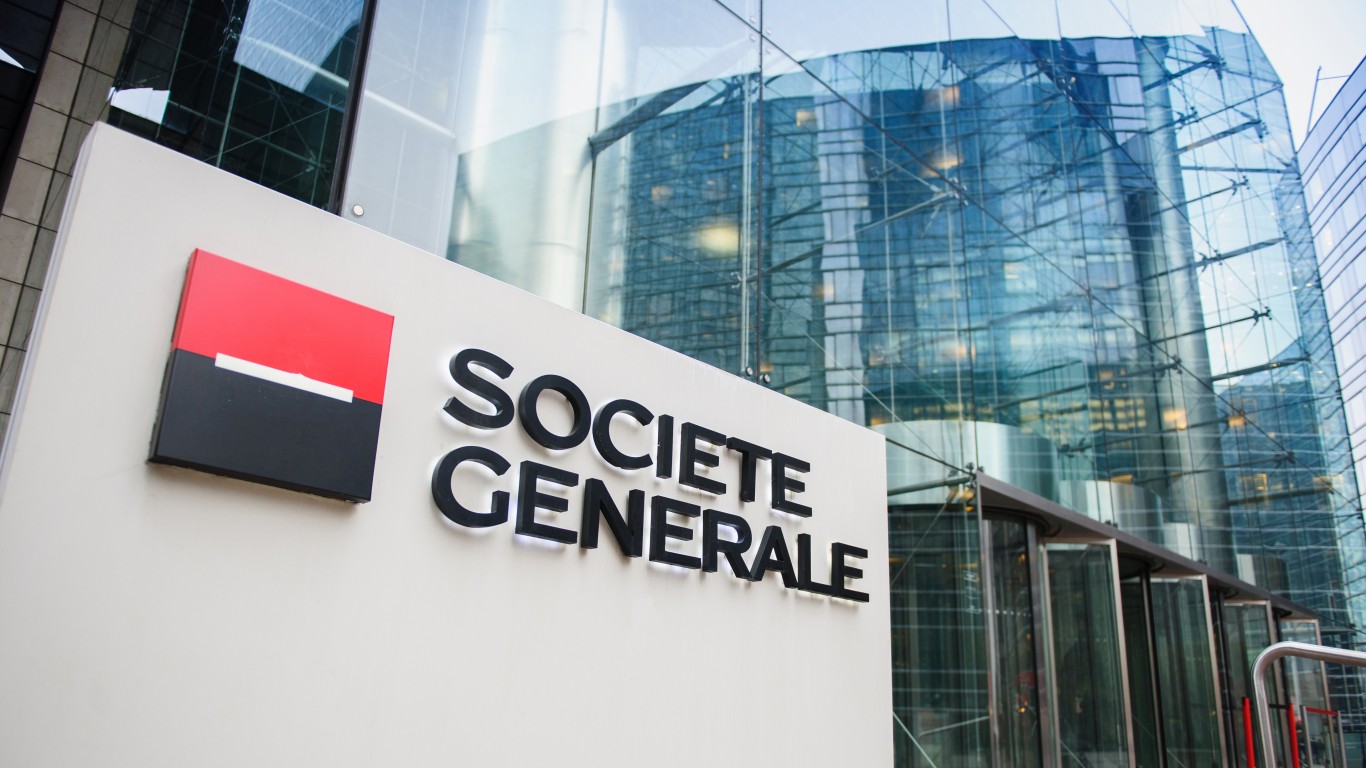
9. France
> Price-fixing penalties against companies headquartered in country since 2000: $2.10 billion
> No. price-fixing cases against companies headquartered in country since 2000: 61
> Biggest offender: Société Générale
The so-called Libor scandal, in which bankers at major financial institutions were colluding to manipulate benchmark interbank lending rates, led to waves of lawsuits and penalties that rippled through the financial system after the scheme was exposed by journalists in 2012. Paris-based Société Générale accrued $584.6 million in U.S. penalties for price-fixing and anti-competitive practices. The largest penalty, of $475 million, was paid by the bank to settle civil charges related to the rate-rigging scandal.
SocGen’s price-fixing penalties no doubt amount to the largest sum, but in total, French-based companies paid $2.1 billion in such penalties since 2000.
[in-text-ad-2]
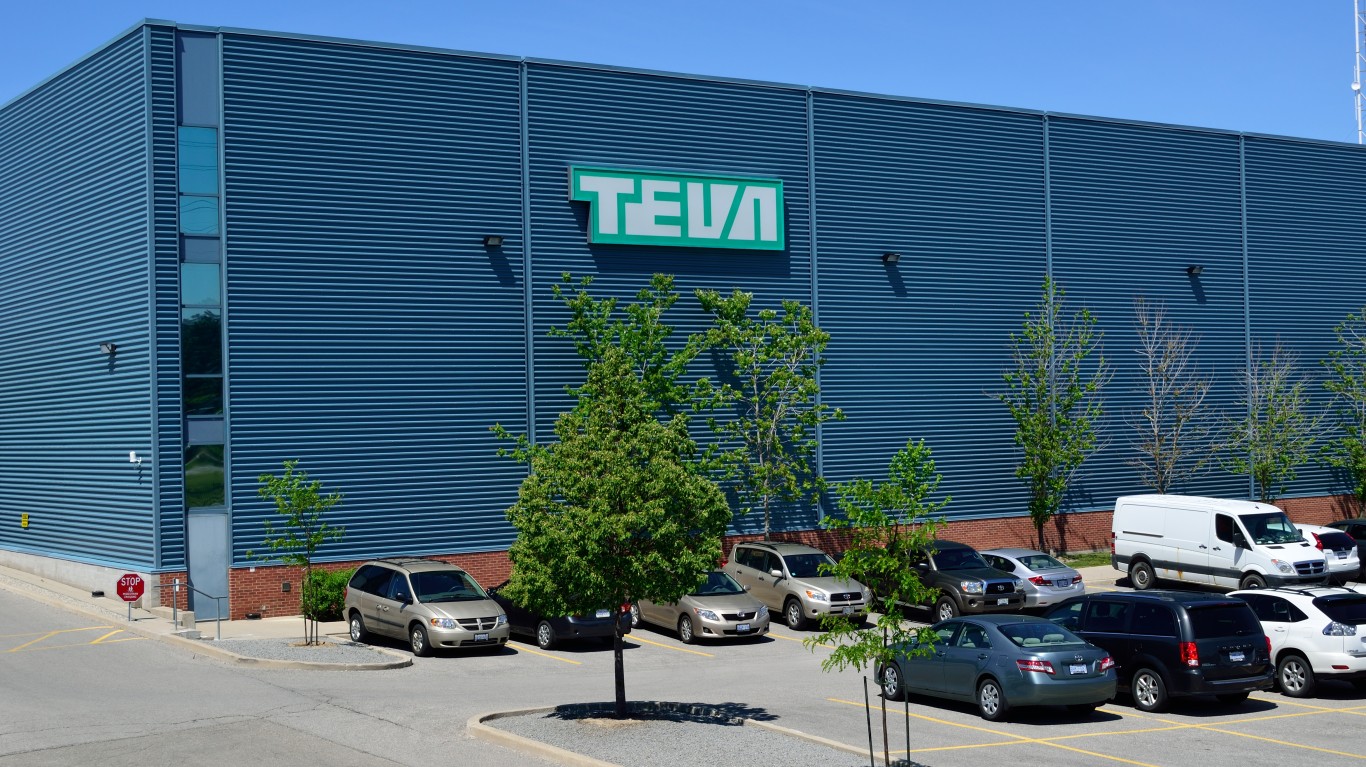
8. Israel
> Price-fixing penalties against companies headquartered in country since 2000: $2.52 billion
> No. price-fixing cases against companies headquartered in country since 2000: 22
> Biggest offender: Teva Pharmaceutical Industries
The biggest U.S. price-fixing or anti-competitive penalty levied against an Israeli-based parent company since 2000 was $1.2 billion paid by Teva Pharmaceuticals. Three years after it acquired U.S. drug manufacturer Cephalon in 2012, Teva settled a civil lawsuit brought by the Federal Trade Commission, which accused the company of illegally blocking generic competition to its popular sleep-disorder drug Provigil.

7. Taiwan
> Price-fixing penalties against companies headquartered in country since 2000: $2.66 billion
> No. price-fixing cases against companies headquartered in country since 2000: 61
> Biggest offender: AU Optronics
From 2012 to 2015, the maker of optoelectronic products like touchscreens AU Optronics was slapped with a series of antitrust lawsuits stemming from a broader years-long price-fixing scheme by numerous Asian companies aimed at coordinating the prices of liquid crystal displays used in laptops desktops computers, and televisions sold to U.S. companies, including Dell and Apple. AUO paid $682.5 million to settle these suits. Other Taiwanese-based companies also paid price-fixing penalties for a total of $2.66 billion since 2000.
[in-text-ad]

6. South Korea
> Price-fixing penalties against companies headquartered in country since 2000: $4.23 billion
> No. price-fixing cases against companies headquartered in country since 2000: 61
> Biggest offender: LG
Like Taiwan’s AU Optronics, the South Korean multinational conglomerate was forced to settle lawsuits from its involvement in fixing prices of liquid crystal display panels sold to U.S. tech companies from 1999 to 2006. Most of the $966 million LG has paid since 2000 for U.S. charges of price-fixing or anti-competitive practices originates from this antitrust litigation, including a $400 million fine in 2008 in which LG Display pled guilty in a criminal case brought by the U.S. Justice Department.
While LG is the biggest offender, South Korean-based companies have paid over $4.2 billion in price-fixing penalties since 2000.
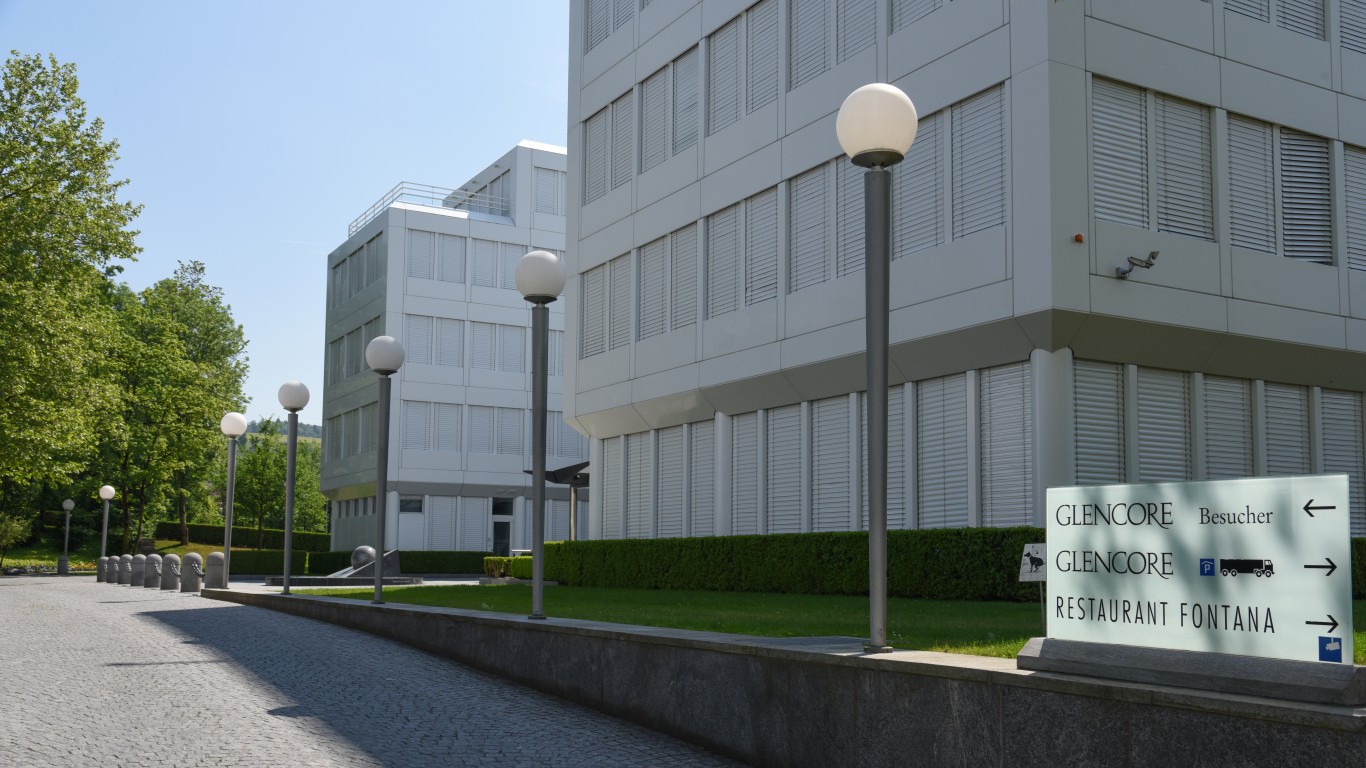
5. Switzerland
> Price-fixing penalties against companies headquartered in country since 2000: $4.41 billion
> No. price-fixing cases against companies headquartered in country since 2000: 51
> Biggest offender: Glencore
Swiss commodity trader and mining company Glencore paid nearly $1.2 billion to settle U.S. civil and criminal charges of price-fixing or anti-competitive practices. The company agreed to pay $700 million of that sum to settle government investigations into violations of the U.S. Foreign Corrupt Practices Act, which prohibits companies with U.S. operations or with stock listed on U.S. stock exchanges from bribing officials in foreign countries for favorable treatment. Glencore also pled guilty to one count of conspiracy to manipulate commodity prices in its fuel oil trading operations in the U.S., paying an additional $485 million.
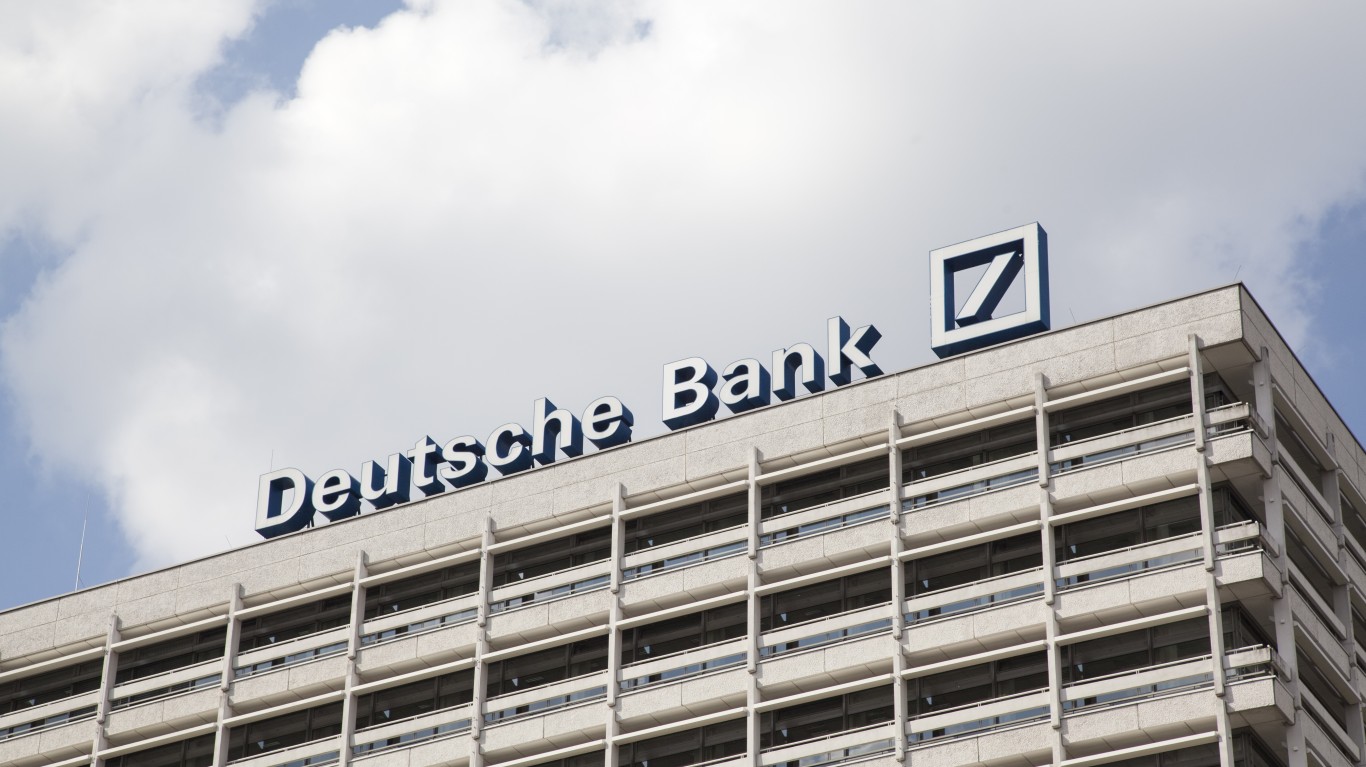
4. Germany
> Price-fixing penalties against companies headquartered in country since 2000: $5.78 billion
> No. price-fixing cases against companies headquartered in country since 2000: 130
> Biggest offender: Deutsche Bank
Four of the biggest offenders on this list, including Deutsche Bank, are financial firms that were embroiled in the massive rate-rigging scandal that was exposed in 2012, in which bankers at major financial institutions colluded as far back as 2003 to manipulate the benchmark interest rates. The Frankfurt-based banking giant or its subsidiaries have paid out $4.1 billion to settle U.S. charges of price-fixing or anti-competitive practices, including nearly $1.6 billion to settle two cases of U.S. civil and criminal charges related to the manipulation of the Libor and Euribor interest rate benchmarks.
[in-text-ad-2]
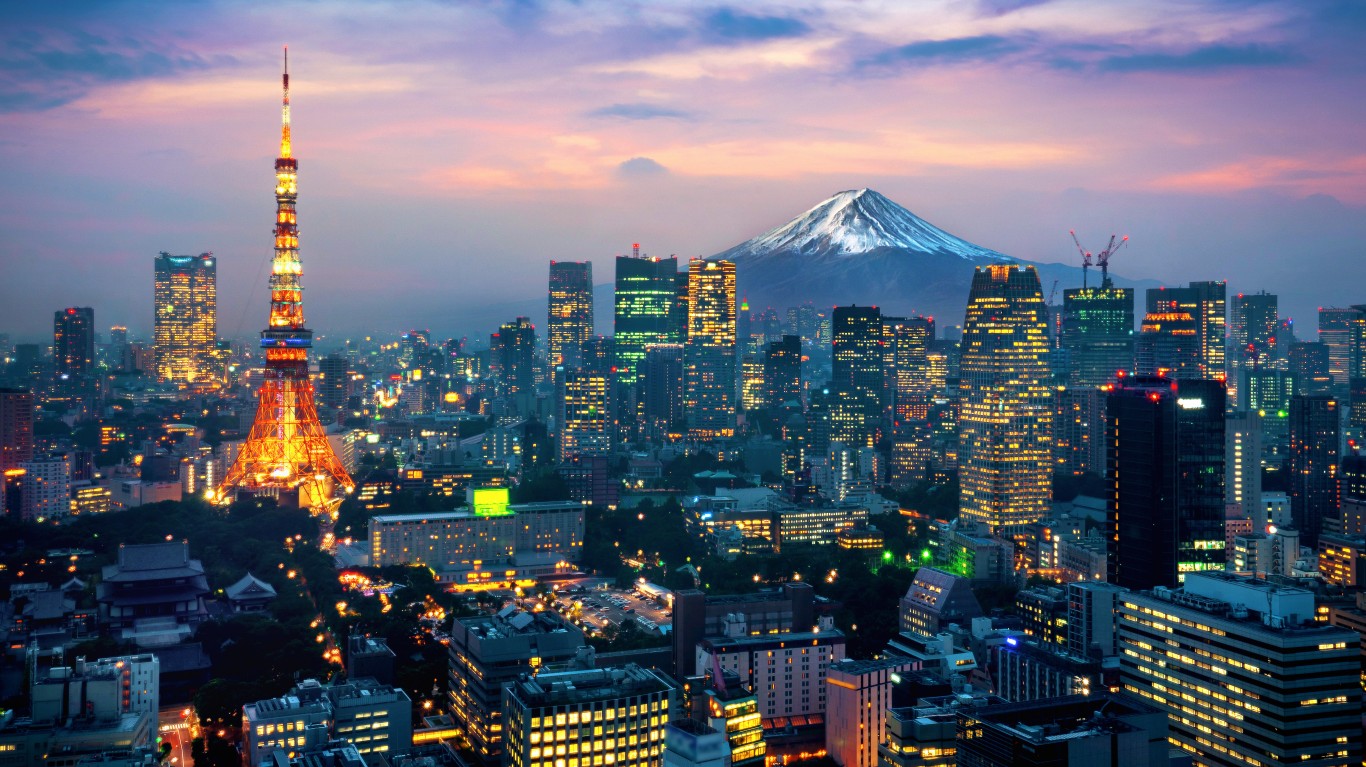
3. Japan
> Price-fixing penalties against companies headquartered in country since 2000: $8.76 billion
> No. price-fixing cases against companies headquartered in country since 2000: 477
> Biggest offender: Yazaki
Privately-held Japanese automotive parts supplier Yazaki has paid $791.5 million since 2000 to settle U.S. charges of price-fixing or anti-competitive practices. In one of these cases, Yazaki and another Japanese auto parts supplier, Denso, pled guilty in 2012 to price-fixing and bid-rigging in a scheme to defraud U.S.-based automobile manufacturers. In 2013, nine other Japanese automotive industry suppliers pleaded guilty to rigging prices for 30 products used in vehicles built or sold in the U.S., leading to fines of more than $740 million. In total, Japanese-based companies have paid over $8.7 billion in price-fixing penalties since 2000.

2. United Kingdom
> Price-fixing penalties against companies headquartered in country since 2000: $9.30 billion
> No. price-fixing cases against companies headquartered in country since 2000: 109
> Biggest offender: Barclays
British banking giant Barclays paid more than a third of the total of U.S. price-fixing penalties from U.K.-headquartered companies since 2000. Out of the $3.75 billion Barclays has paid to settle such charges, $710 million came from a guilty plea for conspiring to manipulate the price of U.S. dollars and euros in the foreign exchange spot market. Citicorp, JPMorgan Chase & Co., and the Royal Bank of Scotland also pleaded guilty and agreed to pay $1.75 billion. Barclays was also involved in the rate-rigging scandal that was exposed in 2012, in which bankers at major financial institutions colluded to manipulate the Libor and Euribor interbank lending rates.
[in-text-ad]
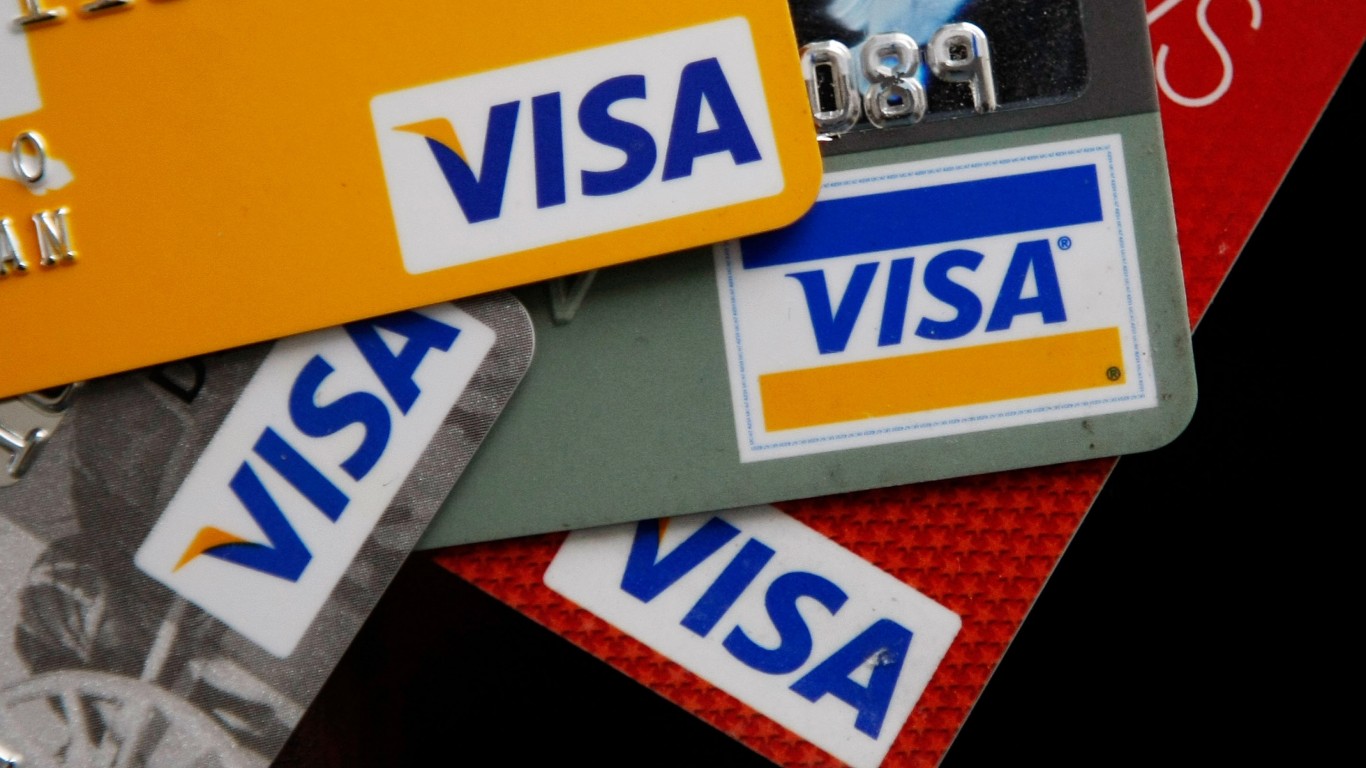
1. United States
> Price-fixing penalties against companies headquartered in country since 2000: $48.95 billion
> No. price-fixing cases against companies headquartered in country since 2000: 864
> Biggest offender: Visa
U.S.-headquartered companies have paid by far the largest amount of U.S. penalties related to anti-competitive practices. San Francisco-based financial services provider Visa is on the hook for nearly 13% of that total, or $6.2 billion, though a large sum of that is still being litigated. In 2019, Visa agreed to pay $4.1 billion to settle charges of colluding to raise swipe fees charged to merchants. MasterCard agreed to pay $2.1 billion in the case. In March, the U.S. Court of Appeals for the Second Circuit denied an attempt by gas station owners to dismantle the class-action settlement that covers about 12 million businesses, according to Bloomberg Law.
It’s Your Money, Your Future—Own It (sponsor)
Retirement can be daunting, but it doesn’t need to be.
Imagine having an expert in your corner to help you with your financial goals. Someone to help you determine if you’re ahead, behind, or right on track. With SmartAsset, that’s not just a dream—it’s reality. This free tool connects you with pre-screened financial advisors who work in your best interests. It’s quick, it’s easy, so take the leap today and start planning smarter!
Don’t waste another minute; get started right here and help your retirement dreams become a retirement reality.
Thank you for reading! Have some feedback for us?
Contact the 24/7 Wall St. editorial team.
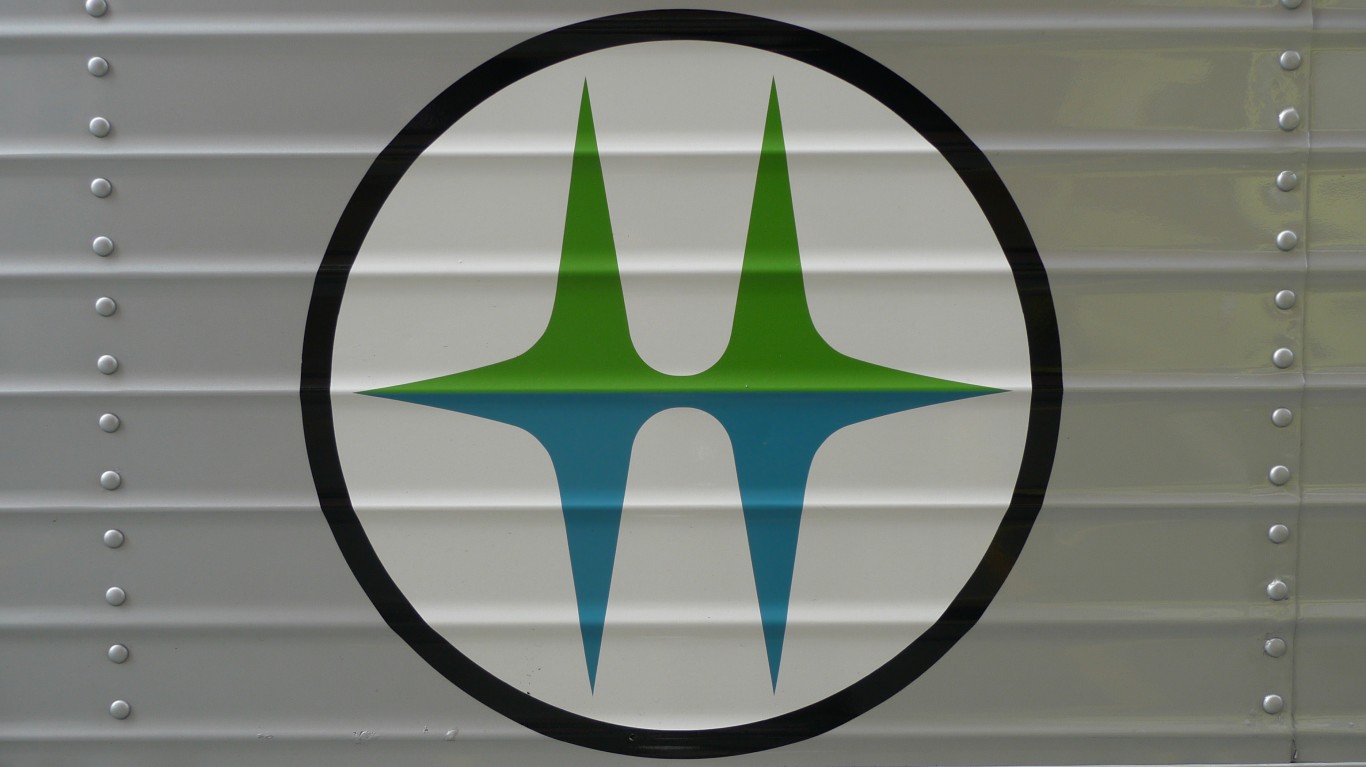
 24/7 Wall St.
24/7 Wall St.